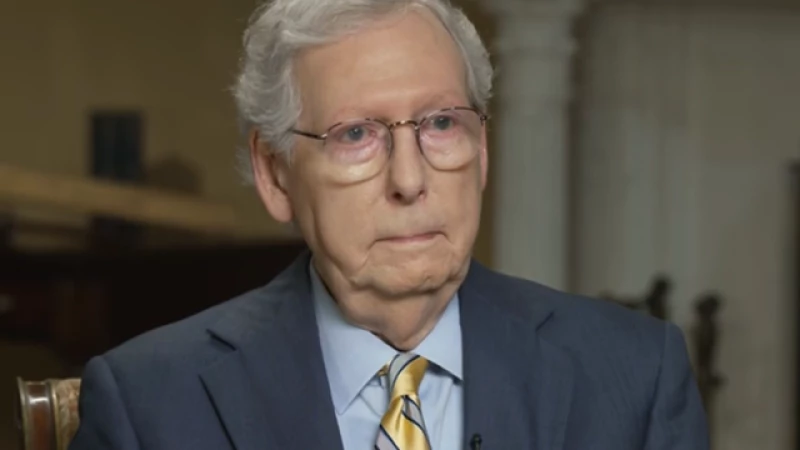Senate Minority Leader Mitch McConnell said he stands by comments he made in the wake of the Jan. 6, 2021, assault on the Capitol that former presidents, including Donald Trump, are "not immune" from criminal prosecution.
"Face the Nation" moderator and chief foreign affairs correspondent Margaret Brennan asked McConnell if he still believes former presidents are not completely immune from prosecution, as he said in early 2021 a little over a month after rioters who supported former President Trump stormed the Capitol.
- Transcript: Senate Minority Leader Mitch McConnell on "Face the Nation," April 28, 2024
The Supreme Court is now considering whether Trump is entitled to broad immunity from federal prosecution, and its ruling in the matter will be critical in determining the fate of his 2020 election trial.
"Let's put it this way. I addressed that issue on February the 13th" of 2021, McConnell said. "... And January the 6th of 2021. I stand by everything I said then. Obviously, it'll be up to the Supreme Court to decide whether I was correct."
Three years ago, McConnell voted to acquit Trump in the impeachment trial over the Jan. 6 Capitol assault, reasoning in part that Trump "didn't get away with anything yet" and could still be held accountable by the courts.
"We have a criminal justice system in this country. We have civil litigation," McConnell said on Feb. 13, 2021. "And former presidents are not immune from being accountable by either one."
At issue in the case before the Supreme Court, Trump v. United States, is whether the former president can face criminal charges for allegedly official acts while he was in the White House. The dispute, which arose from the federal prosecution by special counsel Jack Smith, is the second to come before the justices in their current term with significant consequences for Trump's political future.
- In Trump immunity case, divided Supreme Court seems open to some protection
The highest court could take months to render a decision.
McConnell still endorsed Trump for president, telling Brennan that he has always maintained he would support the Republican nominee for president.
McConnell has said he'll step down from his leadership role in the Senate in November, although his term won't expire until 2027. That means, as Brennan pointed out, Trump could be in the White House while McConnell serves out the remainder of his term.
- McConnell urges university presidents to "regain control" in the midst of demonstrations
McConnell rejected the notion of fact-checking or influencing Trump when the presumed GOP nominee repeats false information about Russia and Ukraine.
"I'm not going to offer any guidance to our candidate in the presidential election," McConnell stated. "My focus is on transforming the Senate into a Republican majority."
After extensive negotiations and deliberations last week, the Senate approved a $95 billion foreign aid bill for Ukraine, Taiwan, and Israel. McConnell, who conversed with Ukrainian President Volodymyr Zelenskyy following the bill's approval, expressed regret for the prolonged process of passing the package. McConnell credited Senate Majority Leader Chuck Schumer for Democrats' unity, noting that it was the Republicans who required persuasion.
Based on the most recent CBS News survey, 79% of self-identified Republicans trust Trump as their primary source of information on Ukraine and Russia, surpassing even the Pentagon. When asked how he intends to combat this messaging, McConnell did not provide a clear strategy.
"The single most important thing I can do is ensure my successor becomes the majority leader, regardless of the outcome of the presidential election," stated McConnell. "I have not been completely satisfied with the current administration. The fact that our nominee chose not to continue pressuring individuals against the package was a positive sign. I will be advocating for an increase in the defense budget, irrespective of the election results, and preparing for the long term challenges posed by China, Russia, and Iran."
Melissa Quinn and Robert Legare contributed to this report







